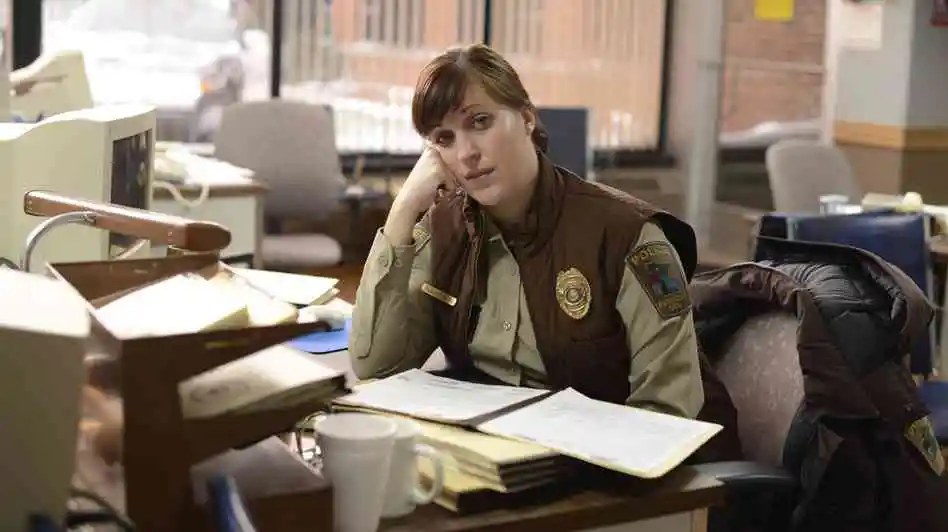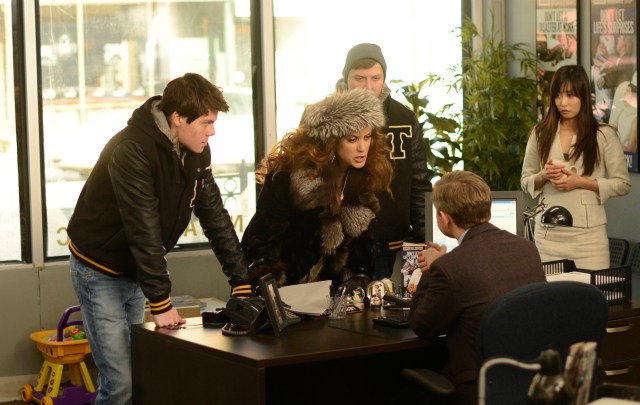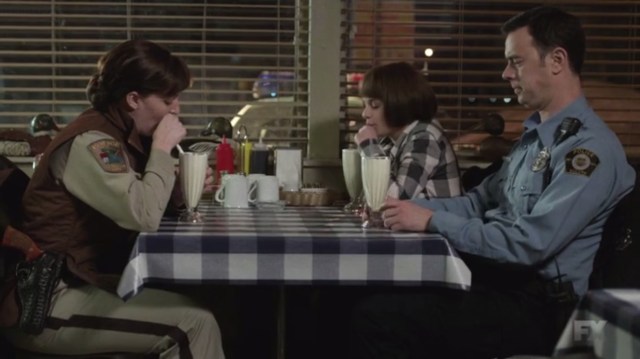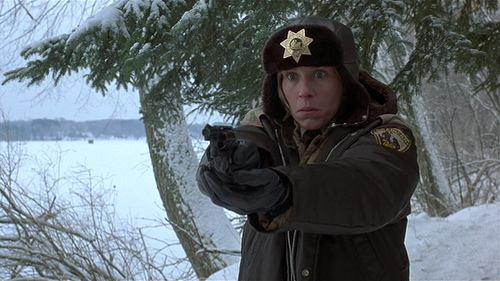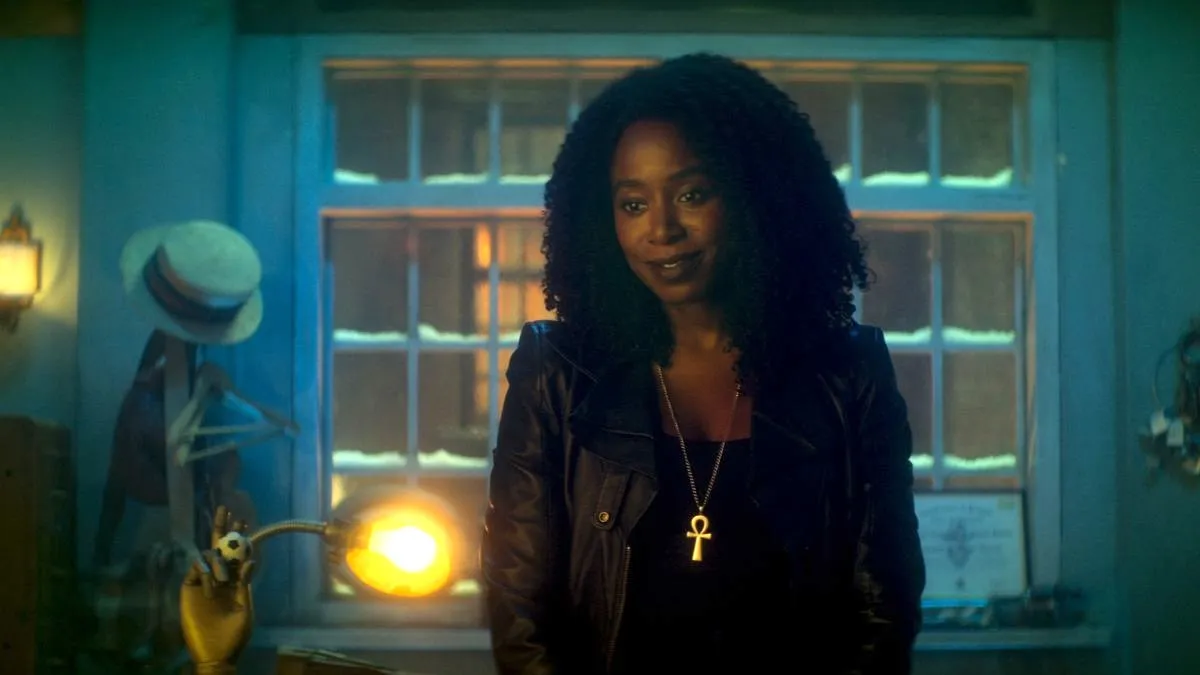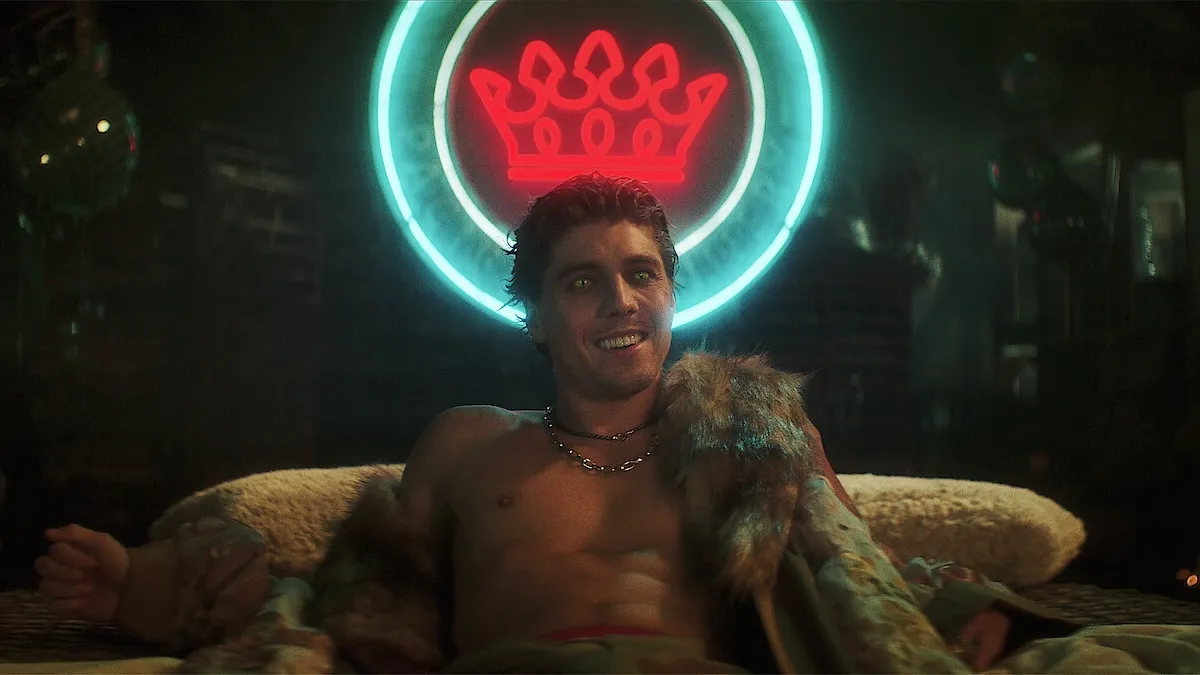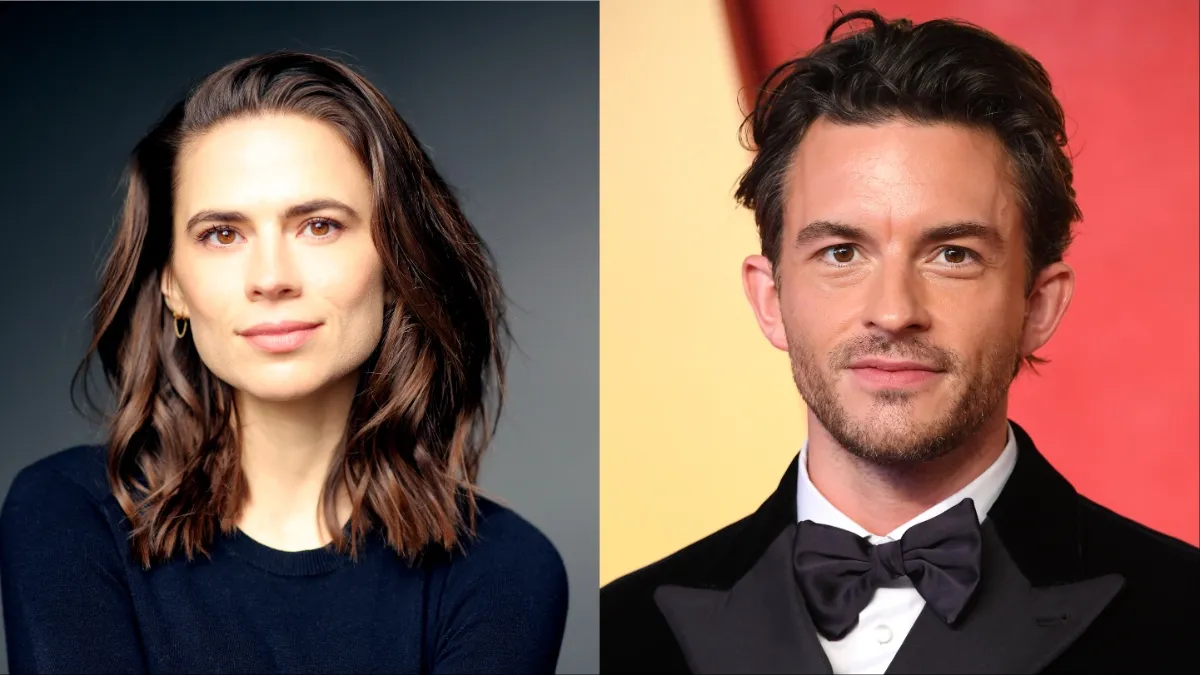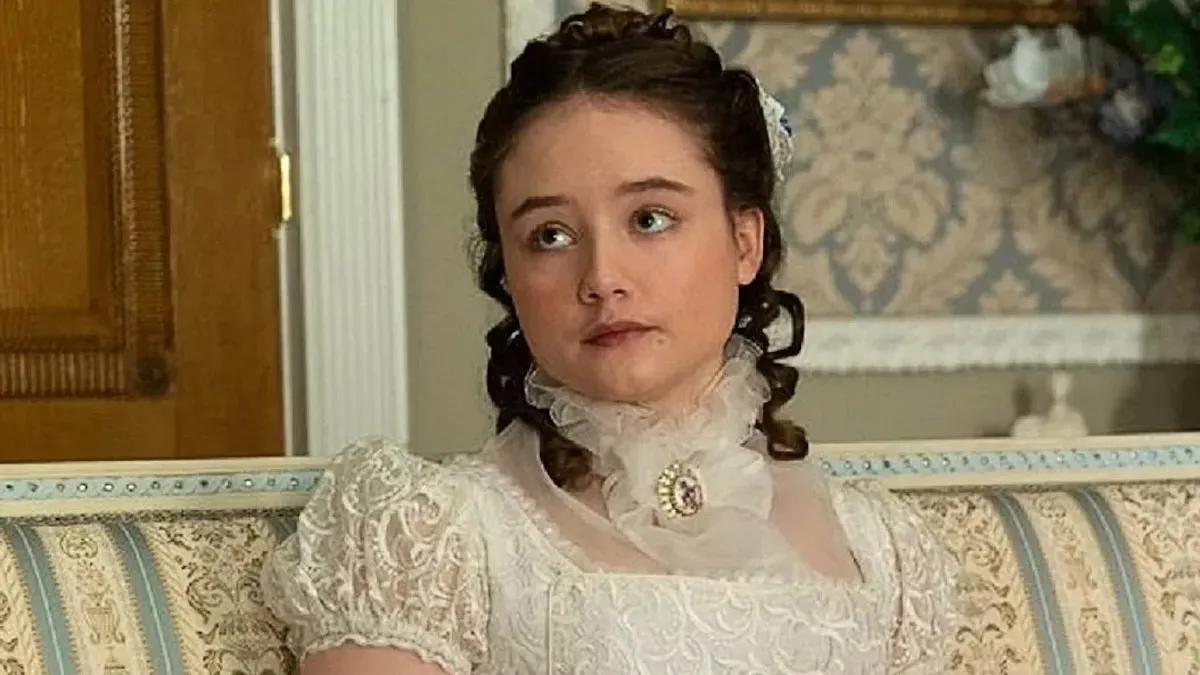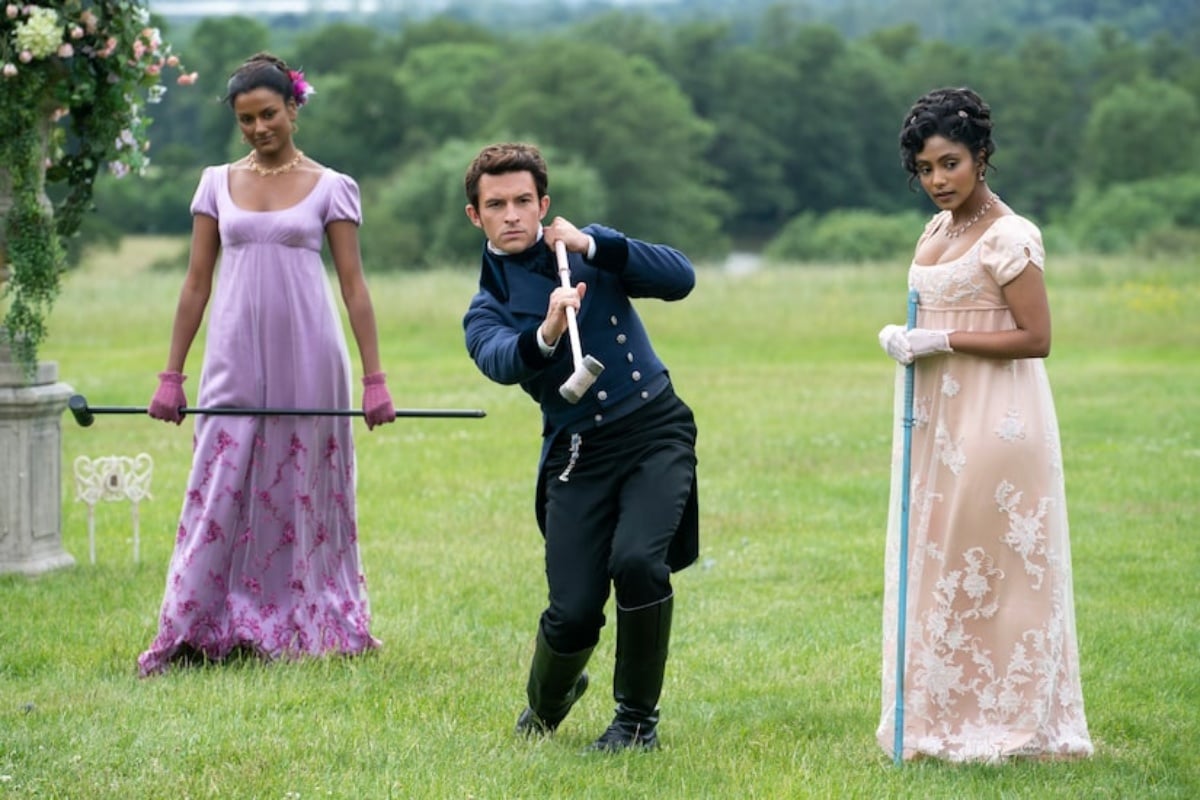Within about two weeks of its debut, FX’s Fargo was being hailed as the best show since Breaking Bad. Maybe everyone was riding high on mid-90s nostalgia, or maybe we just can’t resist an over-the-top folksy Midwestern accent, but I humbly submit that we may have jumped the gun on this one.
In truth, I have a hard time passing any real judgment on Fargo because I’m still struggling to figure out what it was, and what it was trying to be. Was it a sequel? In a loose sense, yes – there is one particular moment halfway through the series where a major player stumbles on the film’s big MacGuffin (the briefcase full of money that Steve Buscemi’s character buried under the snow). In other ways, not really, especially as the show closes on a pregnant female police officer investigating multiple murders with her dopey husband in the periphery, which suggests that the show was more borrowing from the movie than building on it.
Perhaps the biggest reason that I hesitate to call the show great, however, is its treatment of women. The thing about truly great shows is that they write their female characters as interesting individuals, rather than just help meets for their male leads. It’s almost as though good writers know not to alienate half of their potential audience or squander and devalue their characters. Whereas in mediocre shows, nearly all of the female characters can be identified by their relation to men — wives, daughters, sisters, girlfriends, mothers.
Now I know what you’re thinking: Hey, Fargo (like the movie) had a female lead! And she was awesome! And not necessarily conventionally attractive! Wasn’t that progressive?
In a word, no. Which might sound odd, but in looking at Molly within the context of Fargo as a whole, it becomes clear why I’m not prepared to call her a new feminist tentpole in the TV landscape.
On the surface, though, how great is Molly? She’s the best cop on the force, she’s kind and smart and funny and tough and opinionated. Not only that, the actress isn’t a conventional Size 0 TV ladycop and she will not stand for your ludicrous body shaming.
So how could a character like that not be progressive? What’s wrong with Molly?
The problem with Molly isn’t Molly. The problem with Molly is the way in which the show’s writers have configured her as a Strong Female Character in a wasteland of women that we’re intended to see as sluts, nags and doormats. In short, Molly is offered as a Strong Female Character almost as a foil to all of the other women of Fargo.
You can see what I mean right from the start. The show opens with poor old Lester Nygaard (Martin Freeman) being verbally abused by his mean, dumpy wife Pearl (Kelly Holden Bashar). Her constant hen-pecking is intended to make the audience feel sorry for Lester – not particularly good at his job, forever in his brother’s shadow, still afraid of a high school bully and now being made to feel like a failure because he can’t even fix a washing machine. When Lester savagely beats his wife to death with a hammer, the writers seem to have intended for a small measure of catharsis. Maybe she didn’t deserve to die, sure, but she was pushing him a little too far, right?
Things don’t get much better from there. Gina Hess (Kate Walsh) and Helena Milos (Allegra Fulton) are presented as nasty, opportunistic gold-diggers clinging on to their fading looks. Poor Rachel Blanchard has once again been relegated to the role of vapid trophy, this time as Chaz Nygaard’s perfect blonde wife who is more concerned with the fact that her husband could possibly cheat on a former beauty queen with her less attractive sister-in-law than with the revelation that he, you know, murdered her.
And if there’s anything that made me cringe harder than Walsh’s Hess decked out like a Disney villain and sneering, “I was picking your pubes out of my teeth twelve hours ago,” it was Nygaard’s future second wife sighing, “You’re amazing” when the downtrodden sociopath staples Hess’s teenage sons in the face and tells Mrs. Hess to get the hell out. Yes, who wouldn’t go weak at the knees over a man who assaults minors and gains a sense of victory from nailing his old rival’s widow and then gleefully denying to pay out her husband’s life insurance policy?
But it’s not as though Molly Solverson is the only likeable woman in the entire show. There’s always Ida Thurman, widow of Molly’s former boss Vern. She’s likable in her saintly victimhood as she’s only ever relevant as a Widow and Mother. And she shows up all of twice.
The only other character who isn’t some kind of devious harlot is young Greta Grimly (Joey King), Gus’s sassy pre-teen tomboy daughter. For the most part, Greta’s role on the show is to have frank and wise-beyond-her-years conversations with her poor indecisive Dad. I don’t want to demean Greta as “just” being a daughter – the show does give her a little bit to do – but in many ways she falls under the Arya Stark model of a “good female character” to the point where Greta might as well have a name tag that reads: “Not Like Other Girls.” She plays with Walkie-Talkies, not Barbies, and defiantly sits on a porch defending her home with a gun slung over her knee with her grandpa. It’s always great to see female characters who defy “girly” stereotypes, but sometimes it can come off as an attempt to say that girls are only interesting or dynamic when they act like boys.
So finally, let’s talk about Molly. How could she not be a feminist icon? Molly fights against obvious, overt and overbearing sexism in a way that lets the audience say, “Man, that sexism sure is terrible. She’s so capable and everyone around her is so stupid!” It shows sexism as something that is easily identifiable and allows the audience to feel smart and forward-thinking for believing that Molly is being wronged solely because of her gender.
The truth is that most workplace sexism isn’t that overt, and highlighting these instances of sexism as completely black and white and inarguable do potentially lead to a misunderstanding of how institutionalized sexism works. The show even verges on pure parody with a scene in which Molly’s two male superiors stand next to one-another at a urinal literally clutching their dicks and talking about what a nuisance she is. Does overt sexism happen? Absolutely. But it often seems as though it’s only ever presented on television like this: in a way where we can all nod and say, “Yes, that is some bad sexism.” The larger problem is that these conversations and scenes help to build Molly as a beleaguered Lady Cop wherein her whole identity is wrapped up in being a woman in a man’s world.
And maybe this placement of Molly within the realm of the show would be okay if her character was then vindicated in the end. But instead of letting hard-working investigator Molly Solverson bag her man, the writers incongruously give that honor to her husband – the former policeman who quit his job because he was terrible at it. Oh, and the husband who insisted that his wife sit tight and not do her job because he doesn’t want his daughter to lose another mother. To add insult to injury, Molly then insists that it’s her husband who should’ve received a commendation for solving the case instead of her.
Compare Molly Solverson to Fargo’s (the movie) Marge Gunderson and some uncomfortable truths need to be acknowledged. First, we never see Marge’s superiors. She is not framed as a woman struggling her way up the male-dominated ladder. She’s just doing her job well. She’s also nearly always in the right and finds gentle ways to correct her less capable partner. And while people show concern about Marge’s “condition,” and it adds a certain tension to any scenes where she finds herself in danger, the movie ultimately empowers her by insisting that she is still a great police officer who can solve the case and hunt down the criminals even while 8 months pregnant. For these reasons, I have no trouble calling Marge Gunderson a great female character, but Molly? She’s not bad, but it’s a little disheartening that we were given a more progressive female lead 20 years ago.
Now the natural reaction I can already hear bubbling up is this: this is a show about bad people. The male characters are not all capable, intelligent, forward-thinking heroes. In fact, for the most part they’re either bumbling or despicable.
That’s absolutely true. My intention here is not to say that the men are all amazing role models while the women are whores and nags and doormats. The trouble, as I discussed earlier on, is that even though both the men and the women are petty, disgusting, vapid and silly, the male characters’ roles are as individual movers and shakers of the narrative, while female characters’ roles are as their relations: mothers, widows, wives, girlfriends, daughters and sisters to the male do-ers.
My second sticking point is this: people often rush to praise a prominent female character as “progressive” simply because a woman has been given a lead role in a high-profile project. I don’t have to find every prominent female character on TV empowering, and I also don’t think we need to rush to congratulate any show that gives us one prominent female character. After all, when women make up half of the population, one female lead shouldn’t be a news story at this point.
So while I like Molly Solverson, we need to rethink the rush to hail her character as a step forward for women and move to a point where we can just think of her as either a well-written, well-acted character or… not. To paraphrase Allison Tolman: You know, like we do with male characters.
Sarah Arboleda lives with a human and two cats in British Columbia, Canada and writes for a number of blogs including her own — the pop culture-based Tea Leaves and Dog Ears. If you’d like to yell at her, feel free to do so over Twitter.
Are you following The Mary Sue on Twitter, Facebook, Tumblr, Instagram, & Google +?



